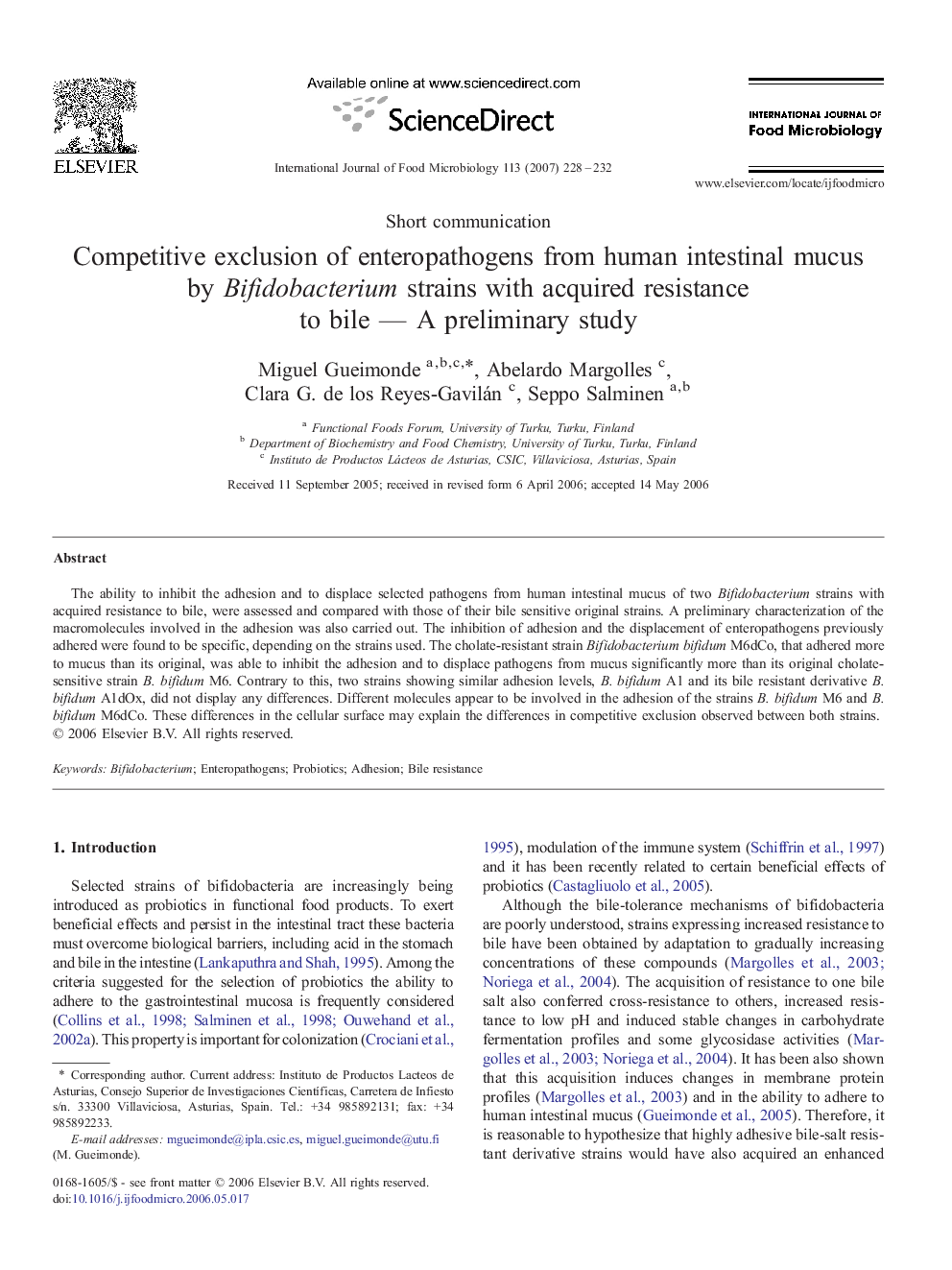| Article ID | Journal | Published Year | Pages | File Type |
|---|---|---|---|---|
| 4369756 | International Journal of Food Microbiology | 2007 | 5 Pages |
The ability to inhibit the adhesion and to displace selected pathogens from human intestinal mucus of two Bifidobacterium strains with acquired resistance to bile, were assessed and compared with those of their bile sensitive original strains. A preliminary characterization of the macromolecules involved in the adhesion was also carried out. The inhibition of adhesion and the displacement of enteropathogens previously adhered were found to be specific, depending on the strains used. The cholate-resistant strain Bifidobacterium bifidum M6dCo, that adhered more to mucus than its original, was able to inhibit the adhesion and to displace pathogens from mucus significantly more than its original cholate-sensitive strain B. bifidum M6. Contrary to this, two strains showing similar adhesion levels, B. bifidum A1 and its bile resistant derivative B. bifidum A1dOx, did not display any differences. Different molecules appear to be involved in the adhesion of the strains B. bifidum M6 and B. bifidum M6dCo. These differences in the cellular surface may explain the differences in competitive exclusion observed between both strains.
